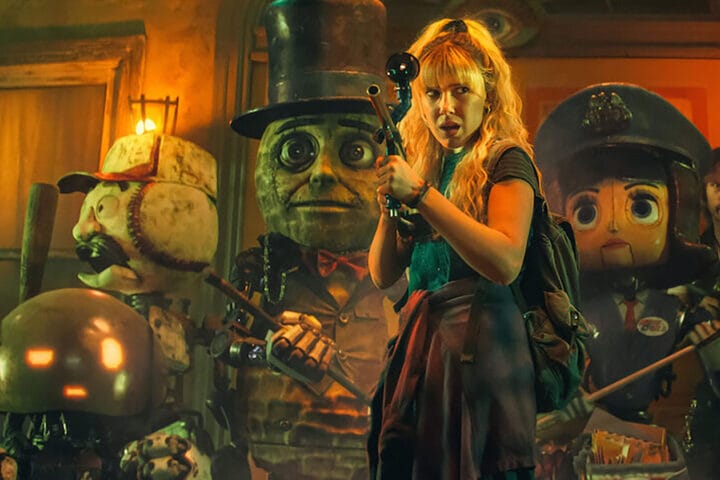“Kaos” is a Netflix series starring Jeff Goldblum and Debi Mazar. It is created by Charlie Covell.
Today, Netflix astonishes us with an ingenious parody of Greek classicism, offering a fresh and modern twist on Greek mythology, all wrapped up with the comedic flair of Jeff Goldblum embodying the role of Zeus. This series revisits iconic figures from Greek mythology such as Dionysus, Poseidon, and Hera, along with the timeless tale of Orpheus and Eurydice’s descent into the underworld, where they encounter Hades and his assistant.
Serving as both a humorous parody and a brief overview of mythology, this classic humor series may not set your heart racing, but it harbors aspirations to capture the essence of Monty Python’s style—apologies to its ardent fans for the inevitable comparisons. The production values are commendable, even if the script leaves something to be desired. Admittedly, the storyline struggles to captivate beyond the initial allure of its mythological updates.
Plot Summary
Time has rolled on, and nothing remains the same in Greece, Mount Olympus, or even the underworld. Zeus, portrayed as a character with horrendous taste, grapples with modernity. Dionysus grows weary of his endless indulgences, and Eurydice has had enough of Orpheus, regardless of his fame. Life, fundamentally akin to that in Classical Greece, has evolved dramatically, and this transformation has left no one particularly pleased. Consequently, Zeus is not happy.
About the Series
This series boasts high-quality aesthetics, particularly with its depiction of the underworld in black and white, enhanced by excellent cinematography. It exudes imagination, though more so in its visual presentation than its narrative. While it delivers amusing and engaging moments, “Kaos” suffers somewhat from the same issues that afflict Wes Anderson’s universe—beautiful to look at, but narratively sparse. This may alienate some viewers, though if you can appreciate such stylistic humor, you’ll find abundant creativity in the set designs, exceptional production values, and meticulously crafted sequences.
The series makes a point to include nearly every significant figure from Greek mythology, continually reminding viewers of their stories and emphasizing its self-aware parody nature. The humor aligns closely with the style of ancient Greek comedy, which was reportedly very popular at the time. It’s an entertaining exercise in turning Greek mythology on its head for a brief while, though it doesn’t aim to present any groundbreaking revelations.
Over the span of eight episodes, viewers are invited to witness the chaos of Greek mythology reimagined and updated for modern sensibilities, offering a more lighthearted take on these ancient tales.
Our Opinion
Does it possess a storyline compelling enough to hold attention beyond the humor derived from updated Greek myths? Can “Kaos” sustain interest beyond its initial comedic premise? The audience will ultimately be the judge of that. One thing we can assert with confidence is that Jeff Goldblum undoubtedly enjoyed his time portraying Zeus, and that joy translates through the screen.
In conclusion, while “Kaos” may not be groundbreaking in its storytelling, it offers a visually stunning, imaginatively conceived, and humorously self-aware parody of Greek mythology, enhanced by Jeff Goldblum’s delightful performance.













